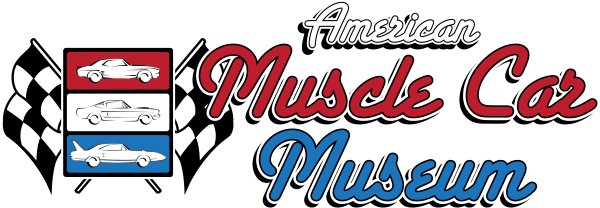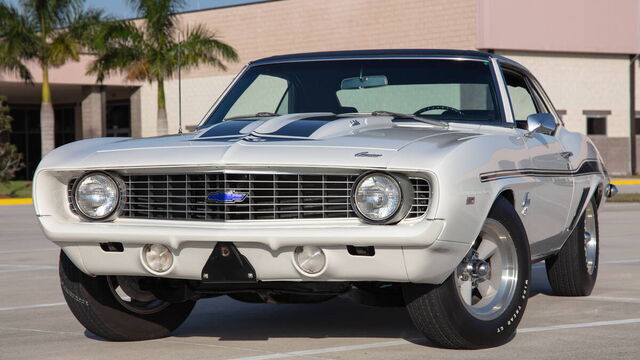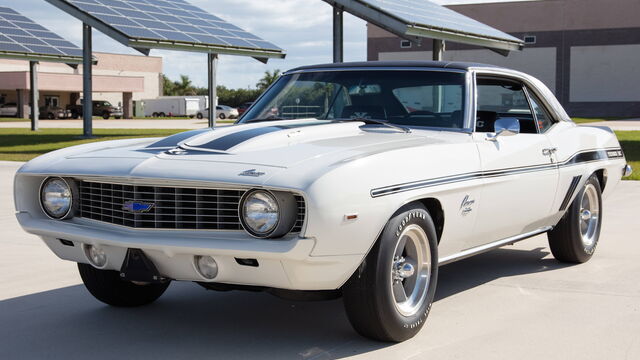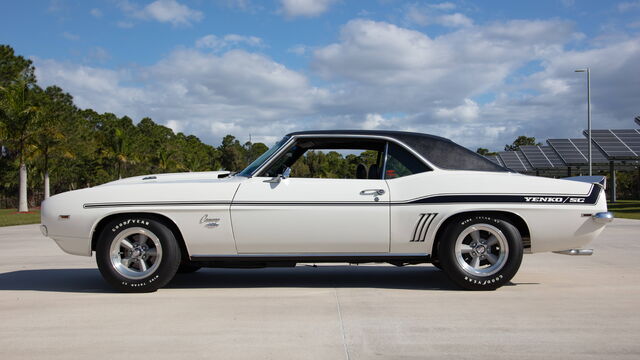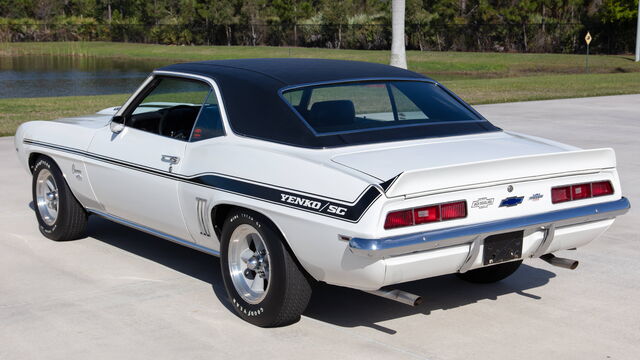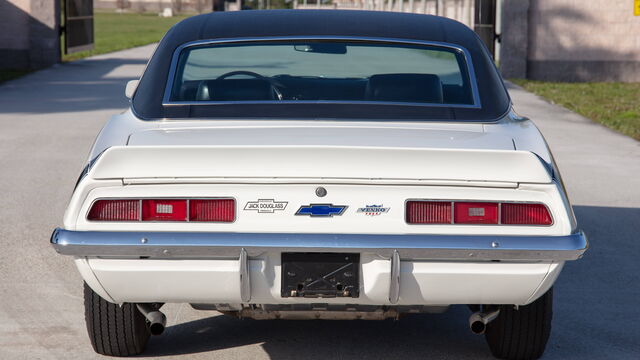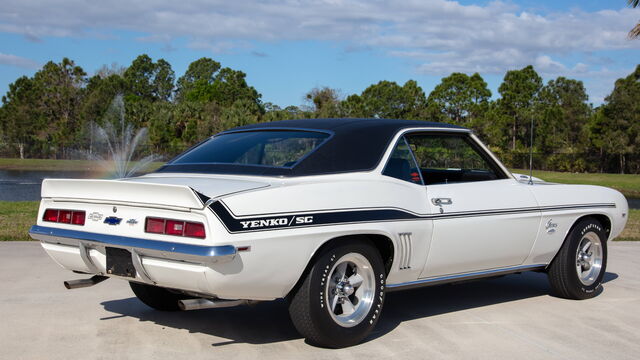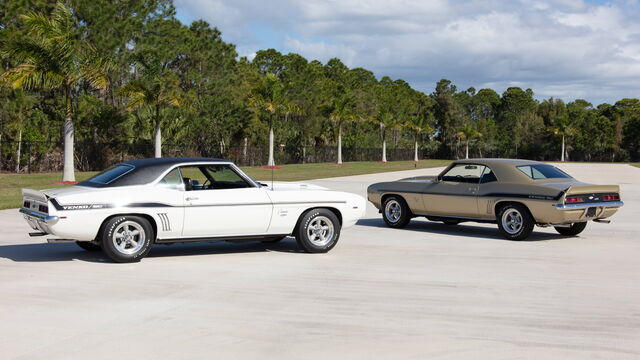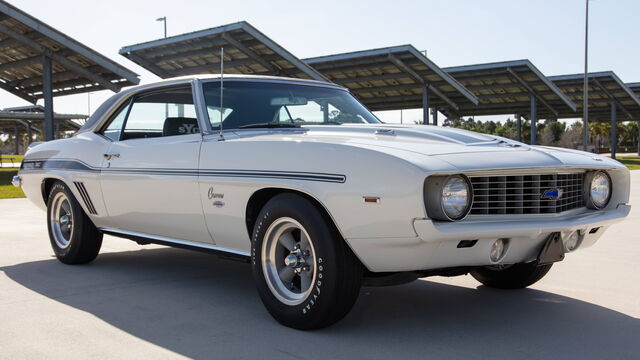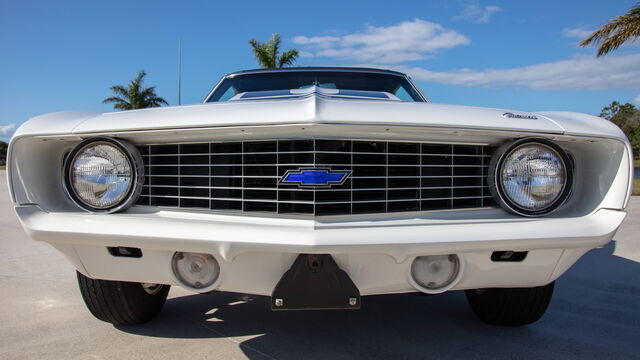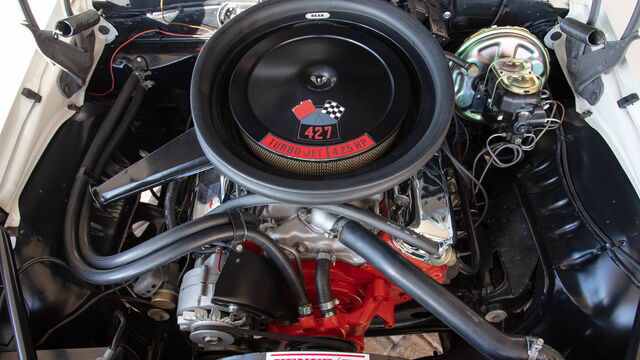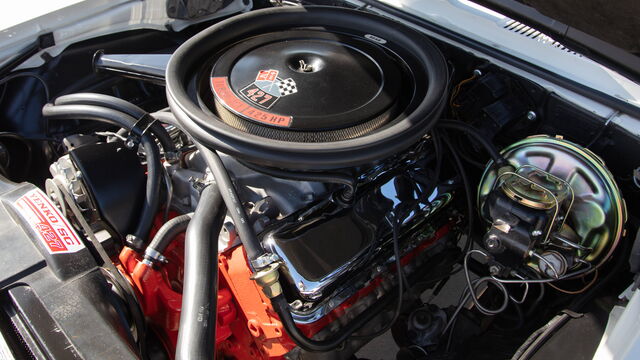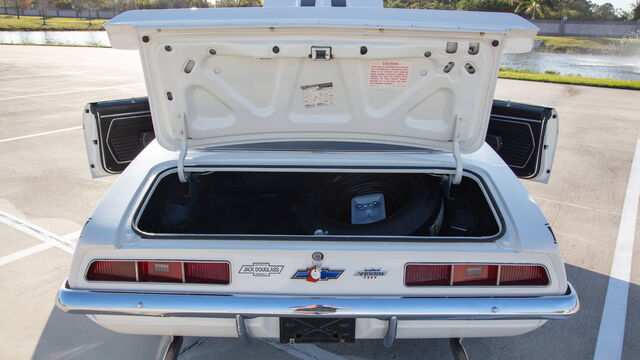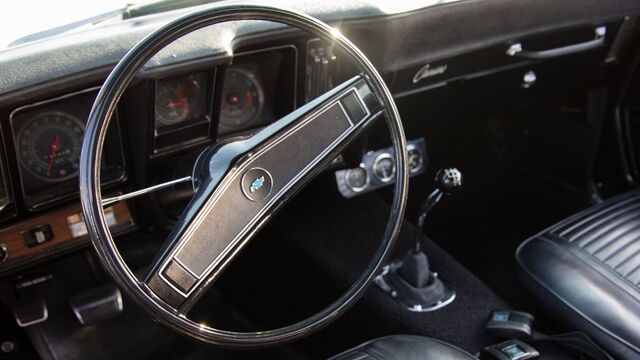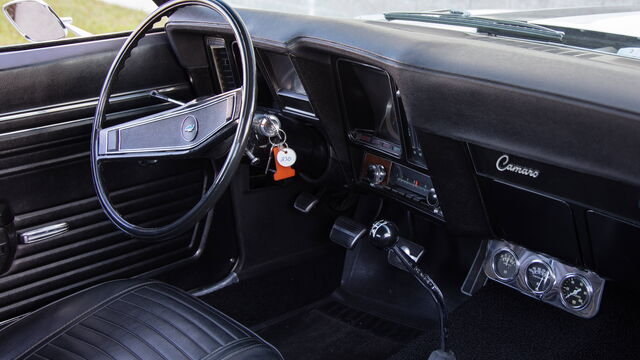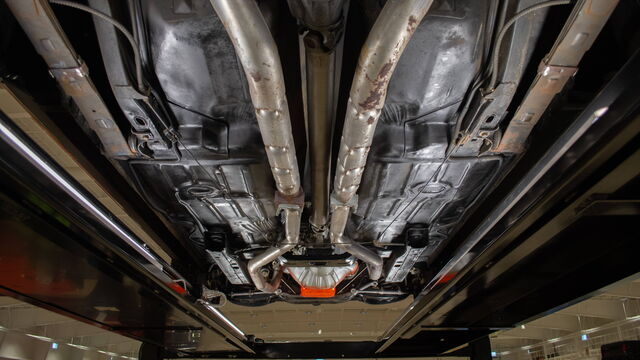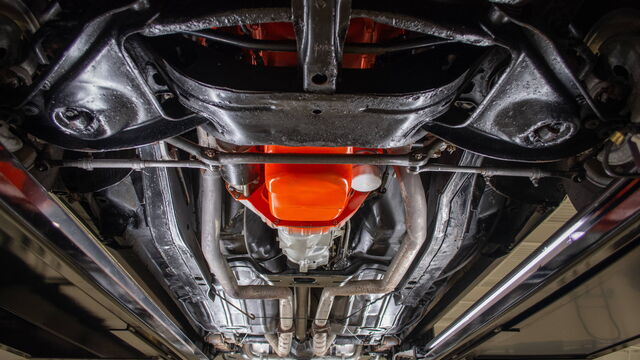Photos:
Click the Image to Zoom
Technical Specifications:
- Year: 1969
- Make: Chevrolet
- Model: Camaro Yenko
- Mileage: 39,842
- Engine: 427 ci/425 hp (L72)
- Transmission: 4-Speed Manual (M21)
- Body Style: 2DR Coupe
- Exterior Color: Dover White
- Interior Color: Black Vinyl
Tags:
Details:
- A unique part of Yenko history
- Very rare Jack Douglass Yenko Camaro
- 1 of approximately 22-25 Douglass-ordered COPO Camaros with Yenko emblems and stripes added by Douglass in Chicago
- 1 of 2 Dover White Yenko Camaros known to exist
- Jack Douglass certificate of authenticity
- COPO Connection certificate
- COPO 9561 L72 427/425 HP engine package and COPO 9737 Sports Car Conversion package
- Original BE-code rear end
- Mostly original interior
- Black vinyl top
- Endura front bumper
- Chambered exhaust
- Protect-O-Plate
- Mostly unrestored with one repaint
This 1969 Yenko Super Camaro represents an interesting subplot in the history of these epochal muscle cars. The story of Don Yenko’s Super Camaros and Chevelles has been well chronicled through the years. After two years of endowing 350- and 396-powered Camaros with Corvette-sourced L72 427/425 HP big-block engines, Yenko convinced Chevrolet marketing manager Vince Piggins to produce 500 427-powered Camaros and Chevelles to be sold through Chevy dealers nationwide. The records show that 201 Yenko Super Camaros were sold in 1969, but approximately 25 of those cars were produced not at Yenko’s Canonsburg, Pennsylvania, dealership but Jack Douglass Chevrolet in Chicago. That little-known fact leads to a controversy that simmered for years in the Yenko community about the legitimacy of the so-called Douglass-Yenko Camaros, to wit: are they “real” Yenko Camaros or pretenders? Today the controversy is done; the supercar community has blessed both as real Yenko Camaros, and it is worth revisiting how they came to be.
The historical facts begin with Jack Douglass Chevrolet. Founded in 1958, the suburban Chicago Chevrolet dealer quickly gained the title of Chicago’s most prolific seller. By the late ‘60s, that reputation grew to include boxcar loads of muscle machinery, including Don Yenko’s Super Camaros. Then one day while the dealer prepping one of the Yenko Camaros for delivery, a Douglass technician discovered the factory COPO documents and gave them to the boss. They revealed that the modifications made by Yenko essentially amounted to applying the 3M vinyl graphics and a few badges, and that is where the story divides into disparate versions, albeit all with the same bottom line: the two reached an agreement to allow Douglass to continue selling Yenko Camaros under license from Yenko.
Purchased new by Dana Crownover of Denver, Colorado, this Dover White and Black 1969 Yenko Super Camaro is illustrative of the typical Jack Douglass version, which departed from the Canonsburg cars in specific details. Douglass COPO Camaros were specified with the X11 Style Trim Group that included Soft Ray-tinted glass, simulated wood-grain interior trim, a dash-mounted passenger grab handle, and polished stainless drip rail, wheel arch, and side louver trim. Douglass cars also featured the optional RPO VE3 Special Body Color front bumper, front- and rear-mounted Blue Bowtie badges, and “Jack Douglass Chevrolet” stickers on the driver-side valve cover and on the tail-light panel.
Built to both COPO 9561 and 9737 specifications, this Douglass Yenko Super Camaro is documented as unrestored but for replacement passenger-door skin and a comprehensive repaint approximately 10 years ago. The sheet metal is otherwise original and very solid, with no detectable repairs. The L72 427/425 HP engine is a date-code correct replacement, while the Muncie 4-speed transmission and special BE-code 12-bolt 4.10 rear end are both original to the car.
In addition to the original dealer papers including the owner’s manual, warranty card, and Protect-O-Plate, the car’s documentation includes certificates of authenticity from COPO Connection and Jack Douglass himself, and relevant notes from Don Yenko’s personal records describing his arrangement with Jack Douglass.
When later owner Bob Trez bought the car in 1992, he was not aware of the Douglass connection. Happily, extensive research by Trez and subsequent owners have served to fill out the history to a much fuller extent. The accumulated documentation is impressive, now encompassing most of the car’s history back to original owner Crownover and Trez’s handwritten research notes.
From mystery to history, this is a unique piece of the Yenko Supercar story.
